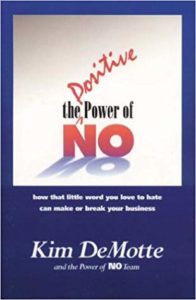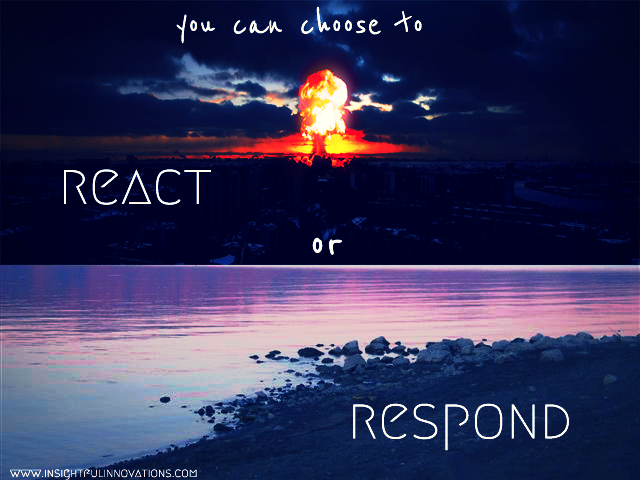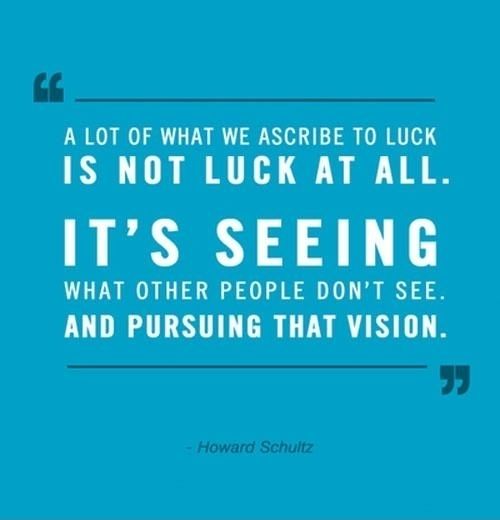 Why do I settle for something that I don’t actually want?
Why do I settle for something that I don’t actually want?
Some 15 years go I, along with a cast of consultants I congregated, wrote The Positive Power of NO. It was a treatise on how liberating that acknowledging and expressing personal, professional, and sometimes physical limits can be. (I can still find a copy of the book if you’re interested!)
Since publishing that book, I have had many more opportunities to explore why we don’t say no more often and what the consequences can be. I’ve also added some tools to my arsenal of weapons for putting individuals in charge of their own destinies. And I’m pretty sure learning how to say “no” is about the biggest tool in the kit.
There are myriad reasons (or excuses) for not saying no when it would clearly take me in the direction I profess to want to go.
I hedge on that last part, because one of the biggest contributors to us settling is the lack of a clear picture of what we actually want. I’ve had clients who never got that clarity, and I’ve had clients who came to me with a clear concept in mind. Success is surer and certainly quicker when that understanding is clear. If it’s not, then that part forms the first job at hand.
My mentor, Jut Meininger, who wrote How to Run Your Own Life—another book that can be found, although out of print and pretty rare—always had a problem with my premise that once you know all the things you don’t want, the leftovers are what you want. We debated the legitimacy of that premise until his passing, some eight years ago.
I think we’re both a little right, in retrospect. Because even though cataloguing all the no’s in one’s life doesn’t seem to pinpoint the uppercase YES, it certainly shrinks the pool of possibilities and makes identification easier.
So, back to why I’ve settled for things in my life when they don’t bring me joy or success or happiness? Maybe this is recognizable.
- I wasn’t clear about what will bring me joy, success, or happiness or
- I wasn’t a quitter.
That’s right. I had a knower/judger (K/J) “rule” about not quitting on things. Clearly I learned this from my dad. It was an underpinning of being raised male in the wake of WWII as a “baby boomer.” I can’t count the stories I’ve heard about sticking with bad jobs, bad relationships, bad food, bad cars… simply because of the “rule” that you don’t give up.
Reason A supports reason B. I have stayed too long at dances because I had no clear idea of where I’d go if I left the dance.
And because I had no idea where I’d go (what I wanted), simply settling for what I had would suffice (and allow me to stay comfortable that I wasn’t breaking my K/J “rule” of not quitting).
So I’ve been stuck often in my life. Settling. Sound familiar?
There are two components to breaking this constricting chain of emotional slavery.
For me, step one has been to question that rule of not quitting. My dad’s been dead for 14 years. He won’t accuse me of anything! Truth be told, he probably wouldn’t have mentioned it even if he was alive. There’s still a K/J reason I never want to quit, but I can now measure it against the cost of staying and the benefits (if any) derived from that sell-out.
Once I allow myself to submit that quitting (saying no) is acceptable, the motivation to stick to that decision comes from getting crystal clear about what I want.
And once I have that vision, it becomes even clearer that staying (settling) cannot and will not take me toward my aspirations.
Once understood and practiced, this vortex of co-dependent self-evaluations has been incredibly liberating for me and dozens of folks I’ve worked with in the past 15 years.
We all know it’s tough to say no. Part of the problem is that we don’t know why it’s so tough (because it’s buried in our emotional DNA—in the K/J ruleset). The other part is that we’re not laser clear about what we want (that settling isn’t supporting). Get those two working together and you can get to the point where, as Jut Meininger said, you can actually run your own life.





Thank You!